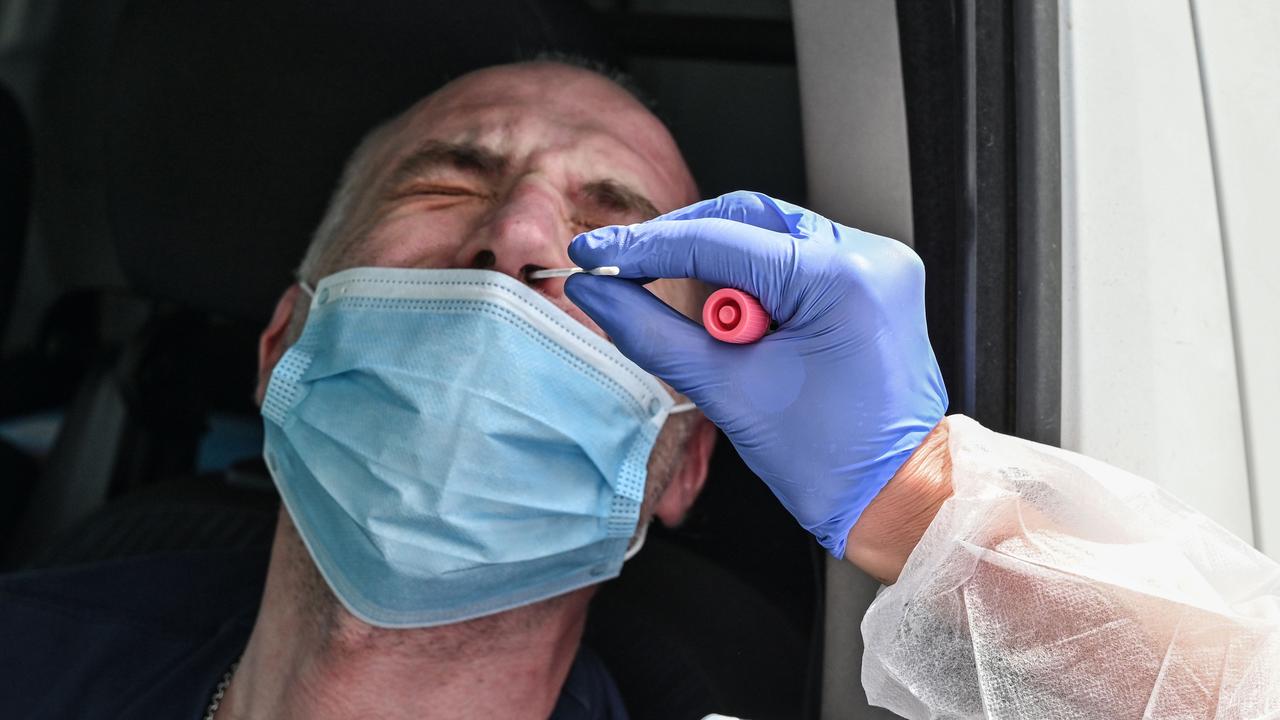How to get your sense of smell and taste back after having Covid-19
It was one of the most common Covid symptoms when the pandemic began. Two years on, some still haven’t fully recovered their sense of taste and smell.
Imagine not being able to drink water, stomach the scent of your shampoo or even have sex with your partner because they smell “like sewage and rotting flesh”.
It’s hard to even think about – but for some people who recovered from Covid-19 months ago, it’s their reality.
While the loss of taste and smell was identified as a coronavirus symptom very early in the pandemic, there’s growing evidence that a substantial number of people go on to develop long-term distortions to their senses.
AbScent, a UK-based support group for people with taste and smell disorders, had just 1500 members before the pandemic. Now it has 76,000 worldwide.
And while Omicron seems less likely to attack these senses, with the rate down to between 5 and 10 per cent, both the Alpha and (still circulating) Delta strains caused a loss of smell and taste in somewhere between 40 and 90 per cent of cases, according to Deakin University professor of sensory science Russell Keast.
Stanford head and neck surgeon and smell-loss expert, Dr Zara Patel, told Healthline: “I could go on for pages about how smell affects the way we interact as human beings – how we choose sexual partners, how we choose life partners, how parents and infants bond, how we make first impressions.
“Basically smell is integral to every part of being human, and its loss is profoundly felt by those who experience it.”
From why you might lose your taste and smell to how you can get it back, here’s everything you need to know.

Why does Covid-19 impact your taste and smell?
Those who lose their sense of smell are suffering anosmia; those who find that once pleasant smells are now deeply unpleasant or altered are suffering parosmia; and those experiencing a distorted sense of taste are suffering dysgeusia.
As for why it happens, put simply, unlike the common cold, coronavirus damages the cells that play crucial support roles for the receptors in your nose on your tongue — which are responsible for your sense of smell and taste.
While researchers first feared that smell loss meant Covid-19 was accessing the brain (and its olfactory bulb), a team of experts at Boston’s Harvard Medical School instead found the cells that support sensory neurons in the nose are probably what the virus is infecting.
Other studies in Italy, however, found there could be other reasons behind taste and smell loss. The researchers found that loss of the two senses occurred at the same time as an increase in blood levels of an inflammation-signalling molecule called interleukin-6.
Will it come back?
For the vast majority of people, yes, your senses will recover.
The receptor support smells damaged by the virus naturally regenerate (think about when you burn your tongue, for example) – usually every two weeks under normal circumstances.
With Covid, though, that time can vary. Widely quoted figures suggest that 90 per cent of people have their smell and taste back within six months.
Professor Keast told The Sydney Morning Herald 75 to 80 per cent of people recover their senses within four to five weeks. But for an unlucky few – as many as 10 per cent – the problems linger much longer.

“When it comes back it may not come back as you want it. It can be quite distressing,” he said.
For those experiencing parosmia, when “everything smells rancid”, it can be especially difficult and last for months, Professor Claire Hopkins, an ear, nose and throat consultant at London’s Guy’s and St Thomas’ Hospital, explained.
As they regain their sense of smell, odours often register as unpleasant and different from how they remembered them, which could be because the olfactory sensory neurons rewind as they recover, she told Nature.
For others who remain fully anosmic (unable to smell anything) for months, she suggested it isn’t clear why, but could be because Covid has killed the olfactory sensory neurons.
What can you do to help it return?
Most people will notice their senses returning gradually over the weeks post-infection, so the hardest part is getting through that time when you can’t taste or smell anything.
“In the vast majority of cases things will return to normal; you have just got to do what you can to get through the short term and hope it doesn’t last too long,” Professor Keast said.
For those suffering long-term, there isn’t yet a clinically proven cure.
However, one option that can help is smell training, which involves repeatedly sniffing smells over several months to reinforce your body’s interpretation of them.
There’s evidence from before the pandemic that it can improve smell function in some people with such impairments, but it doesn’t seem to work for everyone.
Dr Patel recommended anyone who’s suffering seek medical help, instead of visiting online support groups and forums which are littered with misinformation and harmful suggestions.
“Follow the science,” she advised. “Try the things that have been proven via randomised controlled trials and stay away from the others.”






